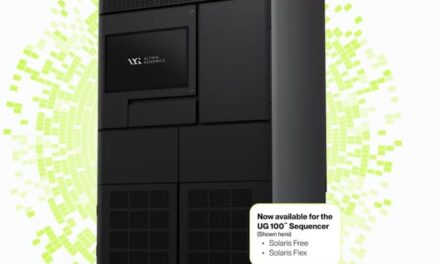Northstar Select detected 51% more pathogenic variants and 109% more copy number variants compared to six commercial liquid biopsy assays in prospective validation study.
BillionToOne’s Northstar Select liquid biopsy assay demonstrated superior sensitivity in detecting clinically actionable alterations in circulating tumor DNA compared to existing commercial tests, according to a prospective head-to-head validation study published in The Journal of Liquid Biopsy.
The study included 182 patients with more than 17 solid tumor types enrolled from six community oncology clinics and one large hospital across the US. Researchers directly compared Northstar Select against six commercially available liquid biopsy assays from four CLIA/CAP laboratories, with assay panel sizes ranging between 73 and 523 genes.
Results showed Northstar Select detected 51% more pathogenic single nucleotide variants and indels and 109% more copy number variants than available comparators, with 45% fewer null reports. When comparing matched copy number variant coverage between assays, Northstar Select detected almost 40% more variants.
The superior sensitivity was validated through orthogonal testing with digital droplet PCR, demonstrating 98% concordance with Northstar Select results. Even in central nervous system cancers, where detection rates in plasma liquid biopsy are typically challenging, Northstar Select detected alterations in 87% of cases, exceeding current reported detection rates of 27% to 55% with other platforms.
Enhanced Detection at Low Variant Frequencies
Notably, 91% of the additional clinically actionable variants detected by Northstar Select were found below 0.5% variant allele frequency, where other assays typically fail to reliably detect alterations. The assay demonstrated greater than 99.9% specificity across all variant classes.
The enhanced sensitivity was not a result of detecting false positives due to clonal hematopoiesis. Matched buffy coat testing identified clonal hematopoiesis variants in both Northstar Select and comparator assays at similar rates, confirming this was not the source of Northstar Select’s superior detection performance.
“Current liquid biopsy assays often fall short in detecting clinically relevant alterations, especially in patients with low-shedding tumors,” says Dr Gary Palmer, chief medical officer of oncology at BillionToOne, in a release. “Northstar Select’s superior sensitivity means we can identify more actionable treatment options for significantly more patients, including those with challenging tumor types where liquid biopsy has traditionally been limited by sensitivity constraints.”
Technology and Coverage Details
Powered by proprietary single-molecule next-generation sequencing technology, Northstar Select covers 84 actionable and guideline-aligned genes with detection across single nucleotide variants, indels, copy number variants, gene fusions, and microsatellite instability high detection.
The assay achieved a five-fold better 95% limit of detection for copy number variants—2.1 copies for amplifications and 1.8 for losses—compared to many first-generation liquid biopsies. For single nucleotide variants, Northstar Select achieved an unprecedented 95% limit of detection of 0.15% variant allele frequency.
The test can differentiate focal copy number changes from aneuploidies, addressing a limitation of existing assays that miss copy number variant losses and cannot reliably differentiate between clinically actionable focal amplifications from broad chromosomal aneuploidies lacking specific therapeutic targets.
Medicare Coverage and Clinical Impact
Based partly on this head-to-head study, Northstar Select has recently met Medicare coverage criteria established by Palmetto GBA, a Medicare administrative contractor that administers the Molecular Diagnostics Services program following review of evidence demonstrating the test’s analytical validity, clinical validity, and clinical utility.
“The enhanced sensitivity we have achieved with Northstar Select is beneficial for all advanced cancer patients but is particularly meaningful for patients that harbor clinically actionable alterations that fall below the limits of detection for other tests, which represent nearly a quarter of all cancer patients,” says Dr Oguzhan Atay, co-founder and CEO of BillionToOne, in a release.
The study establishes the test as having the highest sensitivity for therapy selection in late-stage solid tumor cancers among liquid biopsy assays, addressing what researchers describe as one of the most critical limitations in liquid biopsy testing.
ID 118203373 © Oleg Dudko | Dreamstime.com





